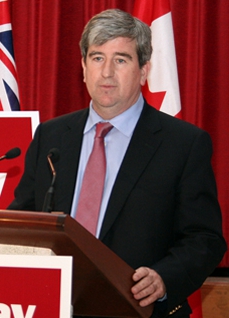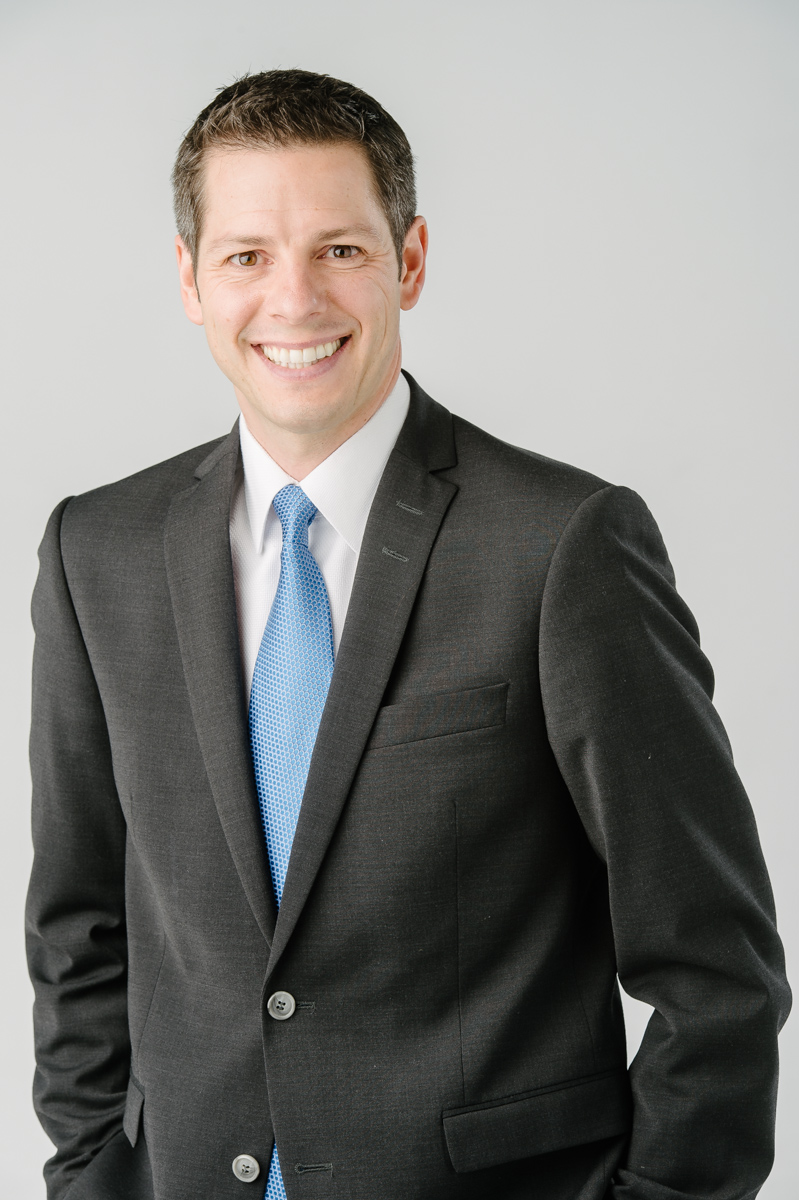Glen Ronald Murray, politician, mayor of Winnipeg (1998–2004), Ontario MPP (2010–17) (born 26 October 1957 in Montreal, QC). Glen Murray became the first openly gay mayor of a major North American city when he was elected mayor of Winnipeg in 1998. In 2010, after moving to Toronto, he was elected to the Legislative Assembly of Ontario. He held several Cabinet posts in the Liberal governments of Dalton McGuinty and Kathleen Wynne. Murray retired from politics in 2017 to head the Pembina Institute. He later made unsuccessful bids for the leadership of the federal Green Party and the mayoralty of Winnipeg.

Early Life and Education
Glen Murray was born in Montreal, the son of an Irish father and a Ukrainian mother. He attended John Abbot College and Concordia University, where he was president of the student union.
Early Career
After graduating, Glen Murray found work at the Winnipeg offices of Canada Post. He soon became actively involved in Manitoba politics. He led a campaign to ensure that the Manitoba Human Rights Code, which was passed in 1987, protected against discrimination on the basis of sexual orientation. (See also Lesbian, Gay, Bisexual and Transgender Rights in Canada.)
Murray became an increasingly vocal advocate for the gay community with the escalation of the HIV/AIDS crisis. It claimed the lives of more than 40 of his personal friends. The experience pushed him to help establish the Village Clinic. It was an early leader in HIV/AIDS testing, treatment and prevention. He also helped found the Canadian AIDS Society in 1986. He went on to work with the World Health Organization on HIV prevention initiatives.
Winnipeg City Councillor (1989–98)
In 1989, Glen Murray ran successfully for Winnipeg City Council. He represented the Fort Rouge ward as part of a left-liberal slate called “Winnipeg into the Nineties.” He was re-elected in 1992 and 1995. He drew media attention as an outspoken critic of then-mayor Susan Thompson. Murray then made a successful bid for the mayor’s office in 1998, when Thompson left city politics. On 28 October 1998, Murray was elected mayor with 50.55 per cent of the vote.
Mayor of Winnipeg (1998–2004)
Despite his initial reputation as left-leaning, Glen Murray’s executive policy committee was initially dominated by pro-business councillors. Murray cut property taxes by 8 per cent between 1998 and 2002. He also introduced a municipal tax freeze in 1998 that lasted until 2013.
In office, Murray enhanced municipal assistance for immigrant settlement and started a program to facilitate private sponsorships for refugees. He also oversaw the establishment of the Citizen Equity Committee. It was intended to diversify the municipal workforce. As the city’s Indigenous population was growing, Murray struck a committee to study the ways in which those communities could be better integrated into the city’s social fabric. The committee called for increased Indigenous representation in the city’s workforce, the establishment of new housing initiatives, and the improvement of dialogue between Indigenous communities and the city.
Murray also became engaged in the Federation of Canadian Municipalities. He chaired the Big City Mayors’ Caucus at a time when they were pushing for stronger revenue-generating measures. sVarious major development projects occurred during Murray’s tenure. These included the construction of Red River College’s downtown campus and the Canadian Museum for Human Rights.
Murray was a broadly popular figure who won re-election with 50.63 per cent of the vote in 2002. (His nearest competitor, Allan Golden, took 37.56 per cent.) But he also faced some criticisms as mayor. He had pledged to protect the downtown’s historic Eaton’s building. But he ultimately allowed it to be torn down to make way for the hockey arena that now hosts the Winnipeg Jets. His detractors, as political scientist Christopher Leo wrote, also argued that Murray was “too visionary and criticized him for ineffectively implementing his own ideas.”
In 2004, Murray resigned to run for Parliament as the Liberal Party candidate for Charleswood–St. James. He lost to the Conservative Party’s Steven John Fletcher by only 734 votes.
In later years, commentators have viewed Murray’s mayoralty with mixed opinions. The Winnipeg Police Service successfully pushed for increased funding in the years after 2004. With Murray’s tax freeze in place, this meant decreased funding for social programs. Additionally, Murray’s successor, Sam Katz, was a proponent of a small-government approach. As a result, some of the programs that began under Murray’s watch were soon abandoned.
Ontario MPP (2010–17)
Following his 2004 electoral defeat, Glen Murray moved to Toronto. He was offered a fellowship at the University of Toronto. His partner, Rick Neves, started a new position as a neurosurgery nurse. In 2007, Murray became president of the Canadian Urban Institute, a think tank that focuses on municipal politics and urban development.
In 2010, he returned to electoral politics, this time running with the Ontario Liberals for provincial office — and this time winning. In the next several years, Murray held five different cabinet positions in the governments of Dalton McGuinty and Kathleen Wynne. He first worked as the minister of Research and Innovation; then minister of Training, Colleges and Universities; minister of Infrastructure; minister of Transportation; and finally, minister of the Environment and Climate Change. Murray supervised a number of initiatives in these roles. They included the expansion of Ontario’s cycling infrastructure and the implementation of the cap-and-trade plan for carbon pricing.
Later Career
In 2017, when the Kathleen Wynne government was falling in the polls, Glen Murray resigned from his position at Queen’s Park. He accepted an offer for his “dream job” as executive director of the Pembina Institute in Calgary. He continued to live in Toronto and worked for Pembina remotely. He left the environmental non-profit organization and moved back to Winnipeg a year later. He stated that he had no interest in returning to politics.
In 2020, however, Murray ran for leadership of the federal Green Party and lost, finishing fourth. In 2022, he ran for re-election as mayor of Winnipeg. His chances of success appeared strong. But during the campaign the CBC released an investigation into his time at Pembina. It revealed that he had been forced out of the organization on account of his “chaotic” management style. Murray ultimately received 25 per cent of the vote, falling two points short of his main opponent, councillor Scott Gillingham.
See also Politics in Manitoba; Politics in Ontario.

 Share on Facebook
Share on Facebook Share on X
Share on X Share by Email
Share by Email Share on Google Classroom
Share on Google Classroom



